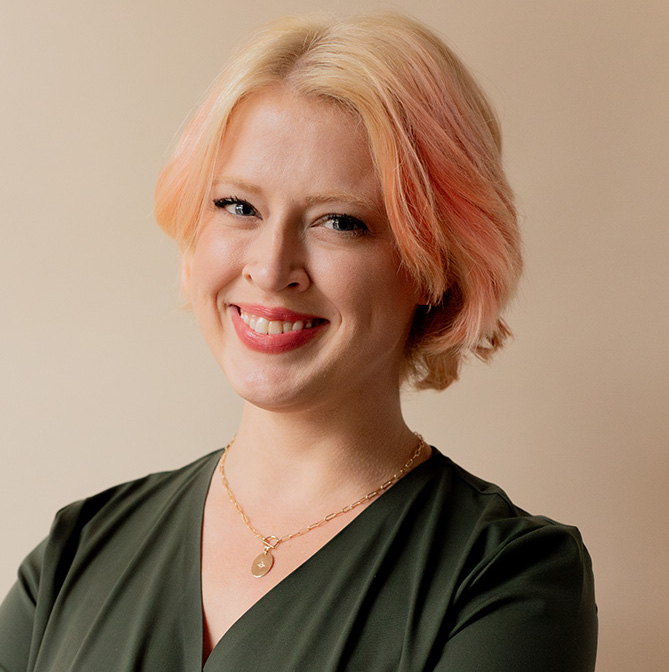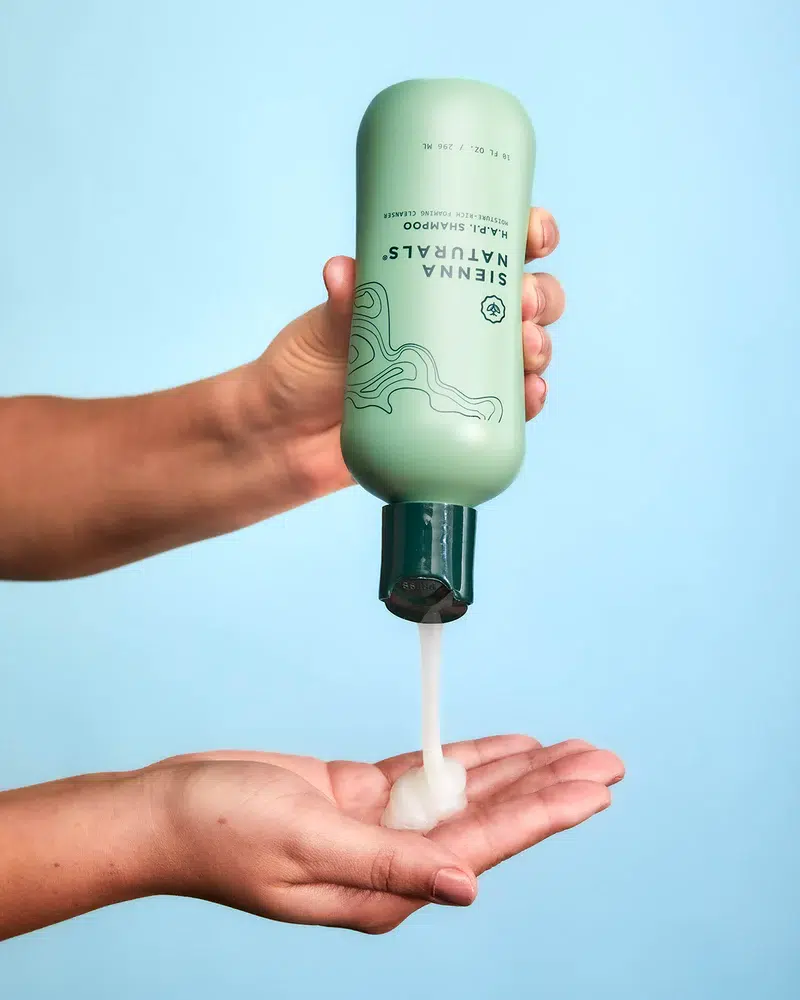
How To Level Up Your Online Presence In 2025
I disappeared from the internet three years ago. Mostly.
During the height of the pandemic lockdowns, I deactivated or privatized all my social accounts. It was for my own good—numbing my big feelings with memes and escaping into lives I was envious of had become toxic for me. The idea of having a “good” online presence in 2020 was just too much for me to handle, while we were already coping with so much.
The only thing that remained was my work, which I fed daily from a desk tucked into the corner of my living room. Day in, and day out, I existed online only through my job and amongst strangers in anonymous video game voice chats.
But now things are starting to change; I’m out in the world again after a long hibernation, meeting humans and making IRL friends for the first time in years.
So I logged back in and dug through my accounts, like an identity archaeologist, to see what my online presence had been before the upheaval. I discovered my old Instagram posts and website no longer matched the person I was becoming. I needed to update…well, everything.
“I want my online ‘home’ to be a place I enjoy existing and playing in on my terms.”
Not because I’m becoming an influencer or launching a business, but because I want my online “home” to be a place I enjoy existing and playing in on my terms. I want to hand over my handle with confidence, knowing when a new potential friend or contact glances at my profile, they’ll have a basic understanding of who I am and what I love.
I reached out to my peers, career coaches, and recruitment experts to learn more about building an online presence that works for you instead of against you. Here’s what I’ve learned.
First, do you need an online presence?
You don’t need an online presence to be valued socially or professionally if it doesn’t align with your goals. You, as a person, remain as brilliant and delightful whether you have an Instagram or not.
However, it can be a valuable tool for meeting people, cultivating friendships, and finding new opportunities—sharing a website or TikTok page can serve the same purpose as handing over a business card. But it doesn’t need to be highly curated or have thousands of followers or subscribers to be effective!
If you choose to have an online presence and want to start using it to present yourself in the world, welcome aboard. But how do you balance intention and authenticity in a world of curated posts and deceiving filters?
“How do you balance intention and authenticity in a world of curated posts and deceiving filters?”
Get clear on your goals
Start by learning whether you’re an online person or not. Dayana Cadet, a Clarity Coach and founder of I See You, Sis, recommends asking yourself: “Who are you trying to connect with, and where do they hang out?” Maybe it’s in-person community events or online on Facebook, LinkedIn, Instagram, Discord, or Slack.
“Who we are is completely unrelated to how many followers we have, or how much of our lives we choose to share.”
If social media is the right fit for you, I encourage you to release any external expectations of how you have to use it before setting your goals.
“I also always make it a point to remind folks that their online presence can be as buttoned up or as vulnerable as they’re comfortable with,” says Cadet, “but it does have to be authentic to who they are.” That’s because who we are is completely unrelated to how many followers we have, or how much of our lives we choose to share.
Instead of looking at the numbers, consider who you want to speak to and why. What next actions do you want friends, followers, or subscribers to take after they come across your online self? Do you want them to be inspired by you? To hire you? To challenge you? Or to feel empowered, or joyful?
Perhaps you don’t want them to take any action at all and just prefer to keep your online presence as a one-way portfolio showcase. That’s okay!
Some goals you might consider here:
- Showcasing your hobbies like design, art, writing, etc.
- Sharing your social media as a calling card after networking events
- Connecting with your friends and family only
- Building a portfolio for new work or freelance opportunities
- Giving and receiving validation from friends + strangers
- Connecting with folks outside of your friends and family who have similar life experiences
- Making people laugh
- Remaining an anonymous lurker (no harm in that! Just don’t be creepy)
Then, do a quick facelift
If your brain works like mine does, it’s easy to get caught up in all-or-nothing thinking that says everything must be done right now. (Get a professional headshot, a new URL, all the corresponding social media handles, take over the world, etc.) You don’t have to do it this way. Trust me, you’ll feel healthier and more grounded if you take this one step at a time.
Here’s a quick checklist for updating your online presence, whether it’s for work or play:
- Update your profile picture to reflect what you currently look like. This is especially helpful if you’ve dyed or cut your hair (🙋♀️) or have other appearance changes you want to convey.
- Revisit your bio! Who are you at work, outside of work, what do you like, or what do you post about most frequently? Here is a bundle of bio ideas if you’re feeling uninspired.
- Archive photos, posts, or blog entries that don’t feel aligned with who you are now. Keep them if you’re comfortable with it!
- Highlight your most authentic self by pinning your favorite photos, updating the date on your most well-loved blog post, or creating new content that reflects your current goals and lifestyle. (I like to think of it like this—what three things do I want folks to understand about me when they stumble across my online persona?)
- Review your LinkedIn presence to see if it’s relevant to your goals. Especially if you’re job searching or in a people-facing job (as many of us are), at least ensure your job title, history, and profile picture are up to date.
- Update your personal website with color schemes and copy that conveys who you are currently. If you don’t have a personal website, don’t rush it. Start with the online presence you already have, and don’t force the time and financial investment until you feel ready to do so.
- Look over everything for red flags, especially if you’re on the job hunt. “Avoid being eye-catching in the wrong ways,” says Matt Erhard of Summit Search Group, a recruiting firm in Canada. Small or inconsistent online presences aren’t a turn-off for recruiters, but Erhard notes hiring managers may think twice “if your online content makes you seem toxic, untrustworthy, or like you’d be a liability for the company if hired.” (The same applies if you’re looking for friends or romantic partners!)
Fit your online life into your routine, not the other way around
If you often find yourself stopping important life events or ignoring momentous occasions in favor of posting to “the ‘gram,” it might be worth examining. Are you sharing things you genuinely enjoy and believe others will too, or are you posting solely for the algorithm to do its magic work and make you look wealthier, or smarter, or sexier? (It’s okay, we’ve all done it).
Our online presence is not an extension of our personality—rather, it’s a vehicle. That means we aren’t who we claim to be online but how we claim to be it. If you’re posting only what you want others to think about you, even though it’s not true, your online persona is simply a product of others’ expectations.
“We aren’t who we claim to be online but how we claim to be it.“
To help with this, you might create a mini set of guidelines or principles for posting to social media if you have a hard time knowing what’s authentic. I’m finding words I can recite when I wonder if something is an aligned post—is this content crafty, silly, cute, joyful, or honest? If not, then maybe I can share it to my disappearing stories, or forgo a share entirely. Knowing your own guidelines can also be helpful for you when navigating what to share in moments of victory, tragedy, or other historic importance.
Ultimately, you don’t have to be an influencer or entrepreneur to curate your online presence effectively, because it’s about recognition more than growth. “It’s not about how much or how often to show up on social media,” notes Rachel Stiles, founder of Stage Creative Network (an online membership site for folks working in the theater space). Instead, it’s about “how to show up in a way that [you] actually enjoy creating a presence.” Ironically, Stiles notes, it’s this type of authenticity that the algorithms are learning to reward with better distribution.
And that visibility for who you are, my friends, is what leveling up is all about.
Emily McGowan is the Editorial Director at The Good Trade. She studied Creative Writing and Business at Indiana University, and has over ten years of experience as a writer and editor in sustainability and lifestyle spaces. Since 2017, she’s been discovering and reviewing the top sustainable home, fashion, beauty, and wellness products so readers can make their most informed decisions. Her editorial work has been recognized by major publications like The New York Times and BBC Worklife. You can usually find her in her colorful Los Angeles apartment journaling, caring for her rabbits and cat, or gaming. Say hi on Instagram!




